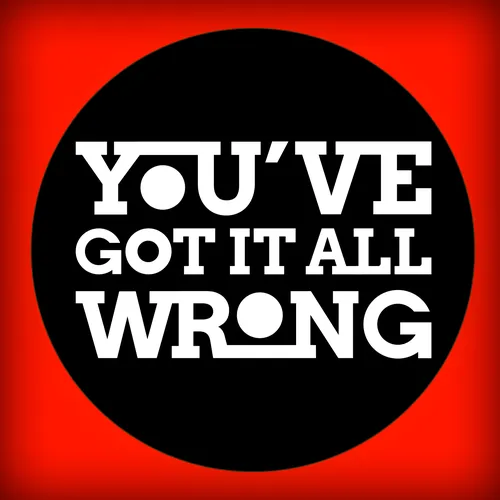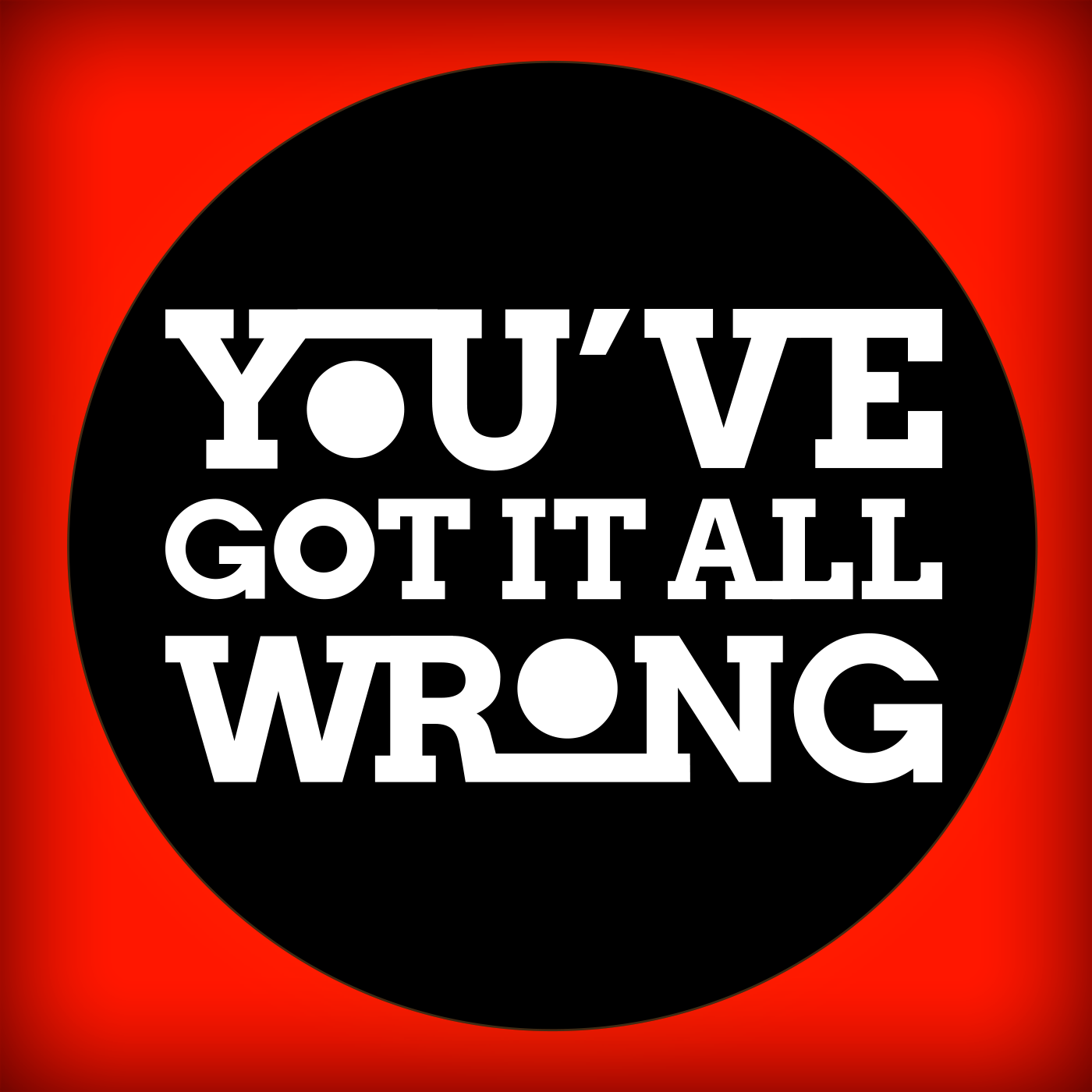
You've Got It All Wrong
A weekly show about philosophy, science and the history of ideas from the Allen Brothers and Mark Sanders (best known to listeners as “America’s Sweetheart”). If you can imagine what would happen if Plato and Carl Sagan were guests on The Daily Show, then you have a pretty good idea of what’s going on here. Each week the trio provides an overview of a philosophical topic, a history of the problem and insights into contemporary thinking. They also take a behind-the-scenes look at the philosophers who came up with these ideas: usually they are kind of nuts (the guy who pioneered Utilitarian ethics had his body mummified and put on display at his college). If you wish your Philosophy 101 course had been more informative, less boring and taught by a professor who drank during class, then this podcast is for you.
- Update frequency
- every 6 days
- Average duration
- 53 minutes
- Episodes
- 22
- Years Active
- 2015

Ep 22: Paradoxes Part II - Buford, Beethoven and Brothers
All handsome people enjoy a good paradox, so we decided to open up our paradox box again and pick out a few new ones for this episode. A lot of paradoxes have to do with the way language works, and h…

Ep 21: Halloween Spooktacular—From Aardvark to Zombies!
Are zombies real? Could we all be zombies? On this special Halloween episode, we raise topics from the dead—specifically we’re reanimating our discussion of philosophical zombies from Episode 2. This…

Ep 20: Listener Mail - Sam Harris and the Ethics of Jabba's Droid Dungeon
In this episode we sort through some listener mail and attempt to answer your most pressing questions. A number of fans wanted to know why we didn’t mention Sam Harris’s book, “The Moral Landscape,” …

Ep 19: Ontological Argument for the Existence of God - The Everything Bagel
In this episode we jump around in time. From a conversation last year at a bagel shop, to Paco’s college years and all the way back to the middle ages. What do an everything bagel and the ontologica…

Ep 18: Moral Realism - Vampire Socrates
Are moral statements objectively true? When we say “stealing for fun is wrong,” are we making a factual claim about the world, or are we just voicing an opinion? Many philosophers, known as moral rea…

Ep 17: Rationalism vs. Empiricism - Kevin Spacey Eyes
Do we learn everything we know from the world around us, or are there some things we learn independently of our sensory experiences? Rationalists argue that some of our knowledge, like concepts in al…

Ep 16: Descriptivist Theory of Names - The Howie Mandel Effect
This is our second show about how proper names work (check out episode 10 for part one). It’s an important topic because much of philosophy is built around the concept of assigning truth values to se…

Ep 15: Possible Worlds - Better call Saul Kripke
You might say it’s possible that Tom Selleck could have played Indiana Jones. But what does that actually mean? Can you prove that this statement is true or false in the some way? In today’s episode …

Ep 14: Paradoxes - Infinite Oranges, Paradise Trunk
Paradoxes have confounded philosophers and handsome people for ages, perhaps since the dawn of language. The oldest ones we have on record come from the ancient Greeks. These paradoxes are thousands …

Ep 13: Categorical Imperative - From Prussia With Love
One of the great debates in philosophy is whether or not moral rules are created by humans or exist independently from us as absolute truths. The German philosopher Immanuel Kant believed that we c…

Ep 12: Personal Identity - What happens on Risa stays on Risa
If all of the cells in your body get replaced every ten years, will you still be the same person a decade from now? If all of your memories get erased today, will you still be the same person tomorro…

Ep 11: Listener Mail - Gary Busey Syndrome
Questions from our listeners have been stacking up, and in this episode we tackle a few of your your most pressing concerns. Is there such a thing as an evil person, and if so, does Gary Busey have…

Ep 10: Sense and Reference - The Superman Paradox
What’s in a name? In his 1892 paper, “Sense and Reference,” the German philosopher Gottlob Frege gave an unconventional answer to this question. Up until that point, most philosophers thought of na…

Ep 9: The New Riddle of Induction - Eaten by a Grue
Inductive reasoning is the process whereby we take a lot of specific observations and use them to form more general conclusions. For example, because we’ve seen millions of black ravens, we conclude …

Ep 8: Ship of Theseus - One Ship, Two Ship, Old Ship, New Ship
The Ship of Theseus is one of longest-standing paradoxes in philosophy. It asks us to consider how something can change over time, but still remain the same thing. If we take a ship, like the Ship of…

Ep 7: Compatibilism - To-do list: Cake, Ketamine, Gym, Podcast
The problem of free will has long haunted philosophers who also want to believe that the laws of physics govern everything in the universe. According to determinism, once set in motion the universe i…

Ep. 6: Thomas Kuhn – Losing my Saganity

Ep. 5: Time Theory – A Time, B Time, C All-Of-The-Above Time

Ep. 4: Supererogation - The Spiritual Bank Account

Ep. 3: Gettier Problems - A Squishy Dodge
The traditional definition of “knowledge,” first put forward by Plato, is a “justified, true belief.” That definition stuck for a few thousand years until Edmund Gettier wrote a famous paper in 1963.…